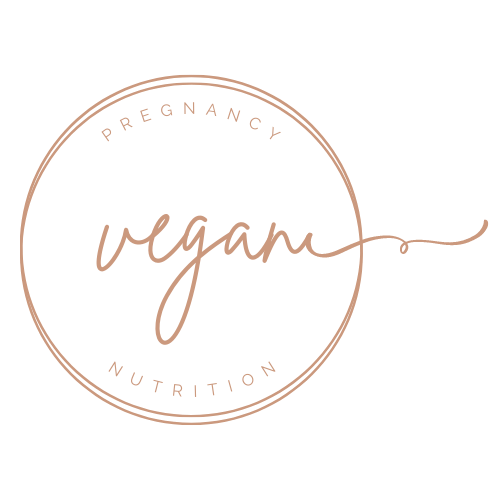What is good for morning sickness? 5 pregnancy tips to try
written by Clarissa Hauber, edited by Maya Bach, MPH, RDN
Why do they call it “morning sickness” if it doesn’t just happen in the morning?
I’m not sure but what I can tell you is that approximately 70% of mamas-to-be will experience nausea, otherwise known as “morning sickness,” during pregnancy.
While there isn’t a single underlying cause, morning sickness may be caused by several factors including low blood sugar and the presence of pregnancy hormones.
Not eating for a while and exposure to certain flavors or aromas can make your symptoms even worse. Symptoms can range from vague tummy discomfort to severe nausea and vomiting and can significantly affect you or your day ahead.
While an uncomfortable part of pregnancy, there are measures you can take to decrease the severity of your symptoms. Let’s cover five simple steps. Remember to always talk to your OB or midwife if you’re experiencing persistent nausea and vomiting. Medical intervention, including but not limited to medication, may help.
1. Take your prenatal vitamins at night.
When feeling nauseous in the morning, the last thing you’ll want to do is swallow a large pill. Instead, consider taking your prenatal at night, when you’re least likely to be awake and nauseous. Some nutrients in prenatal supplements like iron can be hard on your digestive tract, making your nausea worse. Another idea? Cut your prenatal vitamin into two, if possible. Swallowing one whole pill may be a daunting task for your tummy and can be a heavy “nutrient load” all at once. Because your prenatal vitamin itself may also lead to nausea, aim to take it with a meal or small snack.
Simple snack idea: PB with crackers or 1/2 bagel with vegan cheese - to make it easy for your stomach to digest the food!
2. Eat right when you get up.
I know it sounds counterintuitive - “eat when I don’t feel like it??” But yes, please consider trying to eat something small right when you wake up. Because your stomach acid will be churning away with or without food, unsurprisingly, this digestive process may lead to nausea without something in your stomach. If having to get up to grab food in the morning feels too daunting, store non-perishable, simple, and easy-to-digest foods by your bedside. Consider simple crackers or plain cereals, or granola. If you’re into eating breakfast, consider a cold cereal or a nourishing fruit and protein smoothie. Some evidence shows that cold foods trigger our senses - and nausea - less than hot cooked foods.
Simple snack idea: Dairy-free yogurt with plain cereal
3. Avoid skipping meals and aim to eat every few hours.
Similar to what we talked about above, not eating for an extended period may cause your stomach acid to worsen your nausea. If meals are too heavy right now, aim to eat a nutrient-dense and easy-to-digest snack every 3 to 4 hours to keep your tummy slightly full and happy!
4. Try all things ginger.
Studies show that ginger may help reduce nausea during pregnancy. While you want to avoid taking concentrated doses of ginger, like ginger pills, consider other forms of ginger, such as ginger chews, tea, or ground ginger root to help you find nausea relief! One idea: try this 3-ingredient caffeine-free alternative to chai tea:
Spiced Vegan Ginger Latte for Pregnancy
Ingredients:
1 1/4 cup unsweetened soy milk
1/2 teaspoon ginger powder or fresh grated ginger
1 tsp sweetener of your choice
Instructions:
Combine all ingredients in a saucepan on low heat.
After warmed, remove pan from heat, whisk and serve in your favorite mug.
Optional: Add a dash of cinnamon!
5. Stay hydrated!
If you’re struggling to eat or drink due to your nausea, you may be at risk for dehydration. Because your blood volume increases, your fluid needs increase during pregnancy, meaning that staying hydrated across the day is vital. While your fluid needs are unique, The American College of Obstetricians and Gynecologists (ACOG) recommends 8-12 glasses (64 to 96 oz) of water per day. Keep in mind if it’s hot outside or if you’ve been running around all day, you may need more water! The best way to tell if you’re well-hydrated? Your urine color. Aim for a pale yellow color, and know you’re good to go! If you find it hard to get down water during the day, consider using a straw to sip your water slowly.
Bottom Line:
If you still feel that your morning sickness is increasing or remains unbearable after trying some of these methods, talk to your doctor about other measures you can take to deal with nausea. While a certain amount of sickness is average, it's time to seek medical treatment if you find it's impacting your daily life. Medication is available and might be the most effective option for some vegan mamas. And one final reminder - your vegan diet isn't responsible for your nausea! You can have a healthy vegan pregnancy and still have not-so-fun nausea. You're not alone!
Sources:
Ready to feel good about YOUR vegan pregnancy?
Join like-minded women inside the Vegan Pregnancy Collective to get the tools you need so you can stop worrying and wasting time Googling all things vegan pregnancy!








